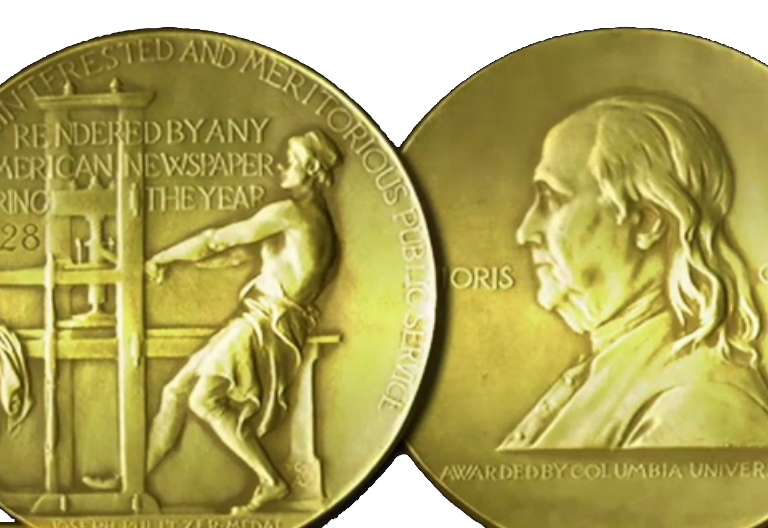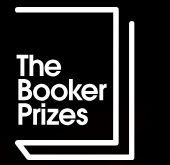Quick Navigation
ToggleThe Pulitzer Prize

Imagine holding the power to shape public opinion, influence policy, and inspire millions with your words. That’s the extraordinary impact of the Pulitzer Prize, journalism’s most coveted honor. Since 1917, this prestigious award has celebrated excellence in reporting, literature, and the arts, shining a spotlight on stories that change the world.
But behind the glamour and accolades lies a complex tapestry of controversy, evolution, and profound cultural significance. From its humble beginnings to its role in the digital age, the Pulitzer Prize has weathered criticism, adapted to changing times, and continued to recognize groundbreaking work that pushes the boundaries of storytelling. As we delve into the fascinating world of the Pulitzer, we’ll explore its rich history, the rigorous selection process, and the transformative power of its winners’ contributions.
Join us as we uncover the secrets behind the golden medallion, from the halls of Columbia University to the frontlines of investigative journalism. We’ll examine the Pulitzer’s impact on shaping public discourse, its controversies, and how it’s evolving in our rapidly changing media landscape. Prepare to be inspired by the stories of those who’ve claimed this illustrious prize and discover why, more than a century later, the Pulitzer remains the ultimate benchmark for journalistic and literary excellence.
History
A. Origins and founder Joseph Pulitzer
The Pulitzer Prizes, established in 1917, owe their existence to the vision of Joseph Pulitzer. As a prominent figure in American journalism, Pulitzer’s will provided a significant endowment to create these prestigious awards. The prizes were designed to recognize excellence in journalism, literature, and musical composition within the United States.
B. Evolution of categories over time
Since their inception, the Pulitzer Prizes have undergone notable changes:
- Initial focus: Early awards centered on journalism and literature
- Expansion: Currently, there are 23 categories spanning various fields
- Recent additions: Online journalism eligibility and inclusion of magazine entries in several categories
|
Category Type |
Examples |
|
Journalism |
Breaking News |
|
Arts |
Fiction, Poetry |
|
Special |
Public Service (Gold |
C. Impact on journalism and literature
The Pulitzer Prizes have had a profound influence on American journalism and literature:
-
Recognition of excellence: Celebrating outstanding works in various fields
-
Financial support: Most winners receive $15,000 along with a certificate
-
Career boost: Winning often leads to increased visibility and opportunities
-
Historical documentation: The History category has recognized 95 works in 97 years
-
Diversity promotion: Efforts to maintain diversity in the Pulitzer Prize Board
The awards have also faced scrutiny:
-
Controversies over individual winners
-
Allegations of ghostwriting
-
Criticisms regarding perceived political bias
-
Studies indicating disparities in recognition based on gender and background
With this comprehensive understanding of the Pulitzer Prize’s history and significance, we’ll next explore the specific “Categories and Award Process” to gain insight into how these prestigious accolades are determined and distributed.
Now that we’ve explored the history and significance of the Pulitzer Prize, let’s delve into the various categories and the award process.
Categories And Award Process
A. Journalism categories
The Pulitzer Prize recognizes excellence in journalism through several categories, including:
- Breaking News Reporting
- Investigative Reporting
- Audio Reporting
- Beat Reporting
- Commentary
- Editorial Writing
- Feature Writing
- International Reporting
- Local Reporting
B. Letters, Drama, and Music categories
In addition to journalism, the Pulitzer Prize honors achievements in literature and the arts:
|
Category |
Description |
|
Fiction |
Works reflecting |
|
Drama |
Theatrical |
|
Poetry |
Collections of verse |
|
Music |
Compositions |
|
History |
Historical works |
|
Biography |
Life stories |
|
General Nonfiction |
Non-fiction literature |
C. Nomination and selection procedures
The Pulitzer Prize follows a rigorous selection process:
- Authors submit their work through an online application
- Entries must adhere to strict guidelines emphasizing journalistic integrity
- A $75 fee is required per submission
- Nominating juries identify three finalists for each category
- The Pulitzer Prize Board, consisting mainly of academic and literary professionals, deliberates and votes on the winners
D. Prize amount and recognition
Winners of the Pulitzer Prize receive:
- A certificate
- A monetary award of $15,000 (except for the Public Service category)
- The Public Service award, presented to a news organization, includes a gold medal
It’s worth noting that the Pulitzer Prize Board may withhold an award if there’s a tie or if submissions lack sufficient merit.
With this comprehensive overview of the categories and award process, we’ll next explore some of the notable winners and their significant contributions to their respective fields.
Notable Winners and Contributions
Now that we have explored the categories and award process, let’s delve into some of the notable winners and their significant contributions to the Pulitzer Prize.
A. Groundbreaking journalism investigations
ProPublica’s investigative reporting on billionaires’ influence on the Supreme Court exemplifies the power of journalism to uncover hidden truths. Similarly, the staff of Lookout Santa Cruz demonstrated the importance of responsive local coverage during severe flooding in California.
Another remarkable investigation exposed the widespread issue of migrant child labor in the U.S., highlighting the Pulitzer’s role in bringing attention to pressing social issues.
B. Influential literary works
The Pulitzer Prize for Fiction has recognized numerous impactful works over the years. Here’s a brief overview of some notable winners:
|
Year |
Author |
Work |
|
1961 |
Harper Lee |
“To Kill a |
|
1988 |
Toni Morrison |
“Beloved” |
|
2023 |
Jayne Anne Phillips |
“Night |
Jayne Anne Phillips’ “Night Watch,” set in a Civil War-era asylum, showcases the prize’s recognition of historical fiction that explores complex themes.
C. Impactful photojournalism
While specific examples of photojournalism winners aren’t provided in the reference content, it’s worth noting that the Pulitzer Prize acknowledges outstanding visual storytelling. Photojournalists often capture pivotal moments in history, providing powerful visual narratives that complement written reporting.
D. Memorable musical compositions
The Pulitzer Prize also recognizes excellence in music composition. Although specific examples aren’t mentioned in the reference content, this category highlights the prize’s commitment to honoring artistic achievements across various disciplines.
With these notable winners in mind, we’ll next explore some of the controversies and criticisms surrounding the Pulitzer Prize, which have shaped its evolution and cultural significance over the years.
Controversies and Criticism
Now that we have explored the notable winners and their contributions to literature and journalism, it’s important to address the controversies and criticisms that have surrounded the Pulitzer Prize over the years.
A. Disputed awards and revocations
The Pulitzer Prize has faced numerous disputes regarding its award decisions, often reflecting the complex relationship between literary merit and societal values. Some notable examples include:
-
Sinclair Lewis’s Main Street (1921): Initially favored by jurors but lost to Edith Wharton due to the board’s preference for a “wholesome” portrayal of American life.
-
Ernest Hemingway’s For Whom the Bell Tolls (1941): Unanimously supported by jurors but vetoed by Columbia University’s president for being offensive.
-
Thomas Pynchon’s Gravity’s Rainbow (1974): Chosen by the jury but rejected by the board for its complexity and perceived obscenity.
These incidents highlight the often contentious nature of the award process and the influence of institutional preferences on recognition.
B. Lack of diversity in winners
Studies have indicated significant disparities in recognition based on gender and background, suggesting a need for broader inclusivity in the Pulitzer Prize awards. This issue reflects broader concerns about representation in journalism and literature. The lack of diversity among winners has led to criticism of the award’s selection process and its ability to reflect the full spectrum of American voices.
C. Influence on media landscape
The Pulitzer Prize’s impact on journalism has been both praised and criticized. Here’s a breakdown of its influence:
|
Positive Aspects |
Negative Aspects |
|
Recognizes |
Can lead to |
|
Elevates journalism as a |
May |
|
Encourages |
Potentially overlooks |
Critics argue that the pursuit of prizes can sometimes overshadow the primary goal of serving the public interest. The article describes the culture surrounding journalism awards, particularly the Pulitzer, as “arbitrary and self-aggrandizing,” suggesting that the focus on accolades may detract from the core mission of journalism.
With these controversies and criticisms in mind, next, we’ll explore how the Pulitzer Prize has adapted to the digital age and the challenges it faces in maintaining its relevance and prestige in an evolving media landscape.
The Pulitzer Prize in the Digital Age
Now that we have covered the controversies and criticisms surrounding the Pulitzer Prize, let’s explore how this prestigious award has adapted to the digital age.
Adapting to new media formats
The Pulitzer Prize, traditionally associated with print journalism, has undergone significant changes to keep pace with the evolving media landscape. In a landmark decision, the Columbia University-based Pulitzer Prize Board has expanded its eligibility criteria to include broadcast and audio companies operating digital news sites. This adaptation allows entities like CNN and NPR to submit entries primarily focused on written journalism, despite their historical exclusion due to limited text-based output.
Key points of adaptation:
- Eligibility extended to broadcast and audio companies with digital news sites
- Entries may include video components, but broadcast journalism itself is not recognized
- New policy effective for 2024 Pulitzer Prizes
Online journalism recognition
The 108th Pulitzer Prizes in 2024 marked a significant shift in the recognition of online media, highlighting its growing importance in the field of journalism.
This shift underscores several trends in the industry:
- Consolidation of high-quality journalism within elite institutions
- Diminishing role of local newspapers
- Increasing prevalence of diverse media formats
Future challenges and opportunities
As the Pulitzer Prize adapts to the digital age, several challenges and opportunities emerge:
-
Local news preservation: With the decline of local newspapers, online platforms have the potential to fill the void in community news coverage.
-
Diverse media formats: The inclusion of broadcast and audio companies opens up new avenues for recognition of quality journalism across various formats.
-
Industry transformation: The shift towards online-native outlets reflects a broader transformation in the journalism industry, presenting both challenges and opportunities for traditional media organizations.
-
Quality assurance: As the landscape evolves, maintaining high standards of journalistic excellence across diverse platforms remains a crucial challenge.
-
Adapting criteria: The Pulitzer Board may need to continually refine its criteria to effectively evaluate and recognize outstanding journalism in an increasingly digital-first environment.
As the media landscape continues to evolve, the Pulitzer Prize’s adaptation to the digital age serves as both a celebration of journalistic excellence and a reflection of the ongoing challenges faced by the industry.
Conclusion
The Pulitzer Prize stands as a beacon of excellence in journalism, literature, and musical composition, continually evolving to reflect the changing landscape of media and storytelling. From its humble beginnings in 1917 to its current status as one of the most prestigious awards in the United States, the Pulitzer has recognized countless individuals and organizations for their outstanding contributions across various fields. The award’s categories, rigorous selection process, and adaptability to the digital age underscore its enduring relevance and impact on American culture.
As we reflect on the Pulitzer Prize’s legacy, it’s clear that its influence extends far beyond the accolades bestowed upon winners. The award serves as a catalyst for important conversations, shines a light on critical issues, and celebrates the power of words to inspire, inform, and transform. Whether it’s exposing societal injustices, crafting compelling narratives, or pushing the boundaries of artistic expression, Pulitzer-winning works continue to shape our understanding of the world and ourselves. As readers and citizens, we are encouraged to engage with these important works, supporting the vital role of journalism and literature in fostering a more informed, empathetic, and just society.



